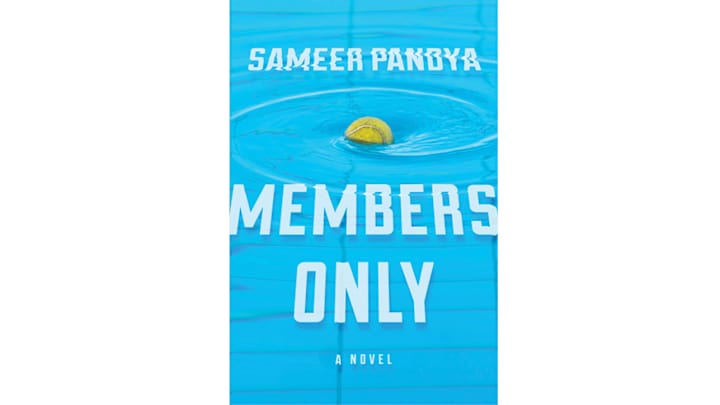Sameer Pandya Discusses New 'Members Only' Book

On this week's episode of Beyond the Baseline, host Jon Wertheim talks with author Sameer Pandya about his forthcoming book, Members Only, which explores the complicated space between black and white America through the character Raj Bhatt and his experiences at a posh tennis club. Wertheim and Pandya discuss the role tennis plays in the humorous, fictional book, how the story can help us think about larger issues in today's world like racism and prejudice, tennis writing as a whole and much more.
Listen and subscribe to the Beyond the Baseline podcast below:
The following transcript has been edited for length and clarity.
Jon Wertheim: What's it like having a book coming out now, when there are no book tours and we're all consigned to our homes? But the flip side of that is: I thought in other ways, this is a very relevant, resonant book and the theme of inclusion and cancel culture.
Sameer Pandya: The residence to this moment in so many different ways is what I do find interesting. I started writing this book several years ago and there are aspects of the kinds of ways in which we are talking about race now or the ways in which we are talking about notions of inclusion vs. exclusion. They weren't just tremors, these are things that we have all been noticing for a long time, right? You know, in some ways, we when we think back on the summer of 2020 or the spring of 2020, we'll think about the ways in which all of these pieces came together in these months of everyone being home. And then these weeks and months of everyone being out in the streets and different kinds of ways. But ultimately, as a writer, the fact that this story that I've written about a middle aged man going through crisis at a tennis club and at a university campus, that if that smaller story can help us think about these larger issues on how we talk about race and what different racializations look like, I'm glad I'm able to do that. I'm glad to be a part of that conversation because it's a conversation I've been having in my head. It's a conversation I've been having with my friends forever. And that feels gratifying in that particular way.
JW: I don’t want to spoil it, I want people to read this book. I think there's this balance between recognizing these indignities. And you also take some shots at this cancel culture, and maybe we should not be expelling people and damaging reputations and families and careers and status because of an ill-considered remark. In tennis terms, I think it hit your sweet spot really well there.
SP: It's interesting because for me, what's fascinating about where Raj finds himself is in some ways he's being canceled by the left and the right. So that this very liberal space is ready to cancel him. And this very conservative space is doing it as well. And I think that in some ways, I am curious of how one slip up in Raj's case, one re-stitching of a video of a lecture that he gives can allow for these things to explode in the way that they do.. And I think that there is a way in which the speed of the book is also asking for pauses as as well, which is to slow down a little bit and think about the pieces of these arguments that we are having. And I think that in a way, those are the movements that we are going to make. We are going to go from an intensity to then being able to step away a little bit to think about these ways in which we do the things that we do and how we are to adjudicate, ow we are to judge the kinds of things that Raj says. Is it worthy of him being completely expelled or can he come back and a particular way?

Jon Wertheim is a senior writer for Sports Illustrated and has been part of the full-time SI writing staff since 1997, largely focusing on the tennis beat , sports business and social issues, and enterprise journalism. In addition to his work at SI, he is a correspondent for "60 Minutes" and a commentator for The Tennis Channel. He has authored 11 books and has been honored with two Emmys, numerous writing and investigative journalism awards, and the Eugene Scott Award from the International Tennis Hall of Fame. Wertheim is a longtime member of the New York Bar Association (retired), the International Tennis Writers Association and the Writers Guild of America. He has a bachelor's in history from Yale University and received a law degree from the University of Pennsylvania. He resides in New York City with his wife, who is a divorce mediator and adjunct law professor. They have two children.
Follow jon_wertheim